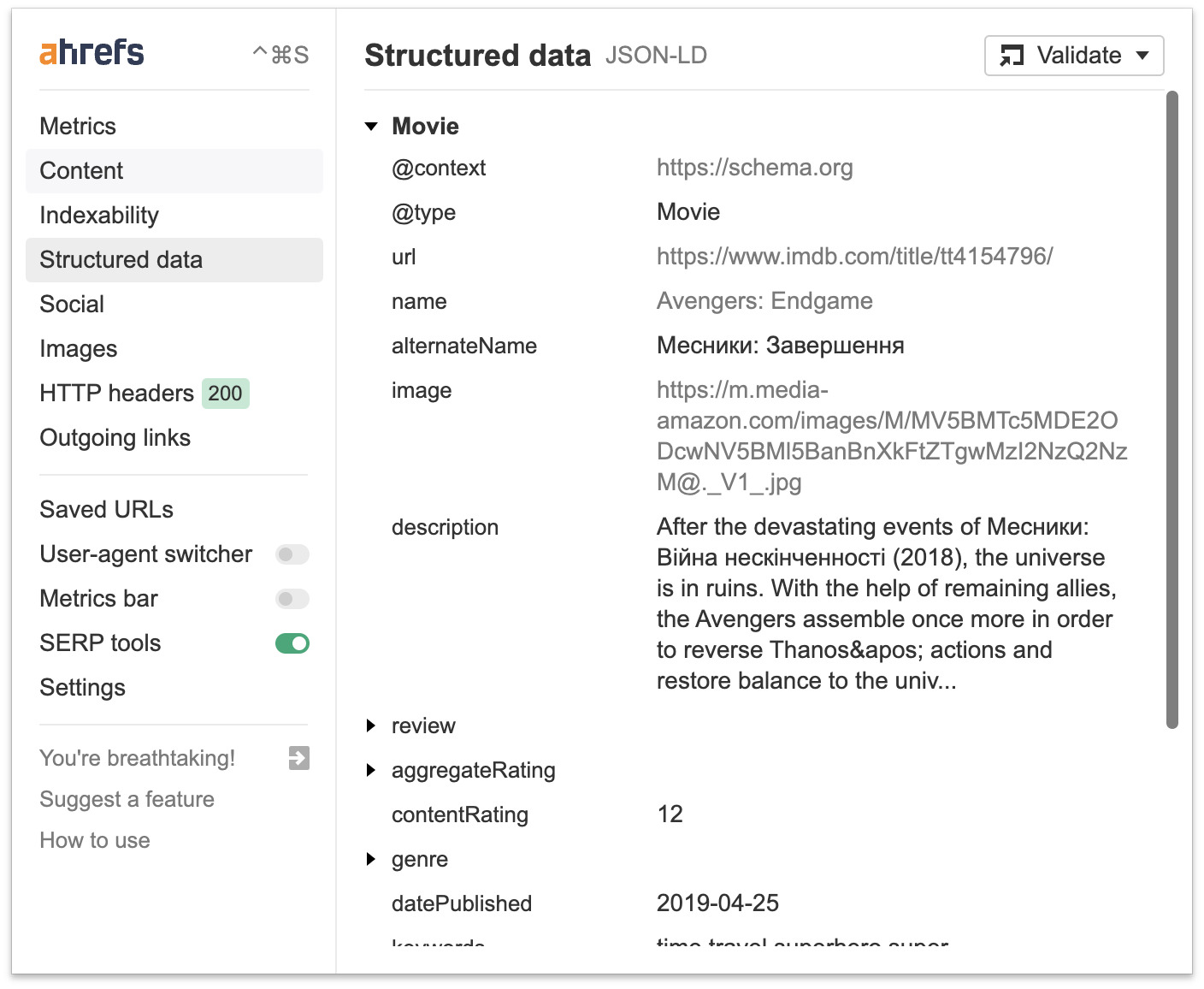Schema Markup
What is Schema Markup?
Schema markup is a term that refers to the structured data on web pages that utilizes the vocabulary provided by schema.org. Schema.org is a collaboration between Microsoft, Yahoo, and Google, with the goal of supporting a unified set of structured data markup on web pages.
Although technically incorrect, the terms “schema” and “structured data” are often used interchangeably by SEOs and developers.
Here’s an example of schema markup for a movie as seen via Ahrefs’ SEO Toolbar:

Why is Schema markup important?
Schema markup is important because it helps search engines understand data on your pages more clearly and present it in more attractive ways in rich snippets and other enriched search results.
By ranking in rich results, your web pages receive greater visibility on search engine results pages (SERPs), leading to increased click-through rates.
How can Schema markup help with SEO?
Google utilizes the data from schema markup on web pages to generate rich results, including movie carousels, events, and rich snippets with ratings. By implementing relevant structured data using schema markup, you can increase the likelihood of your web pages ranking in Google’s enriched search results.
Google recognizes several popular Schema markup types, including:
- Article
- Product
- FAQ
- Recipes
- Video
- etc.
How can you implement Schema markup on your website?
If your website runs on WordPress, adding schema markup is pretty easy with one of the many free plugins available.
If you need to add schema markup manually, Google’s Structured Data Markup Helper will come in handy.